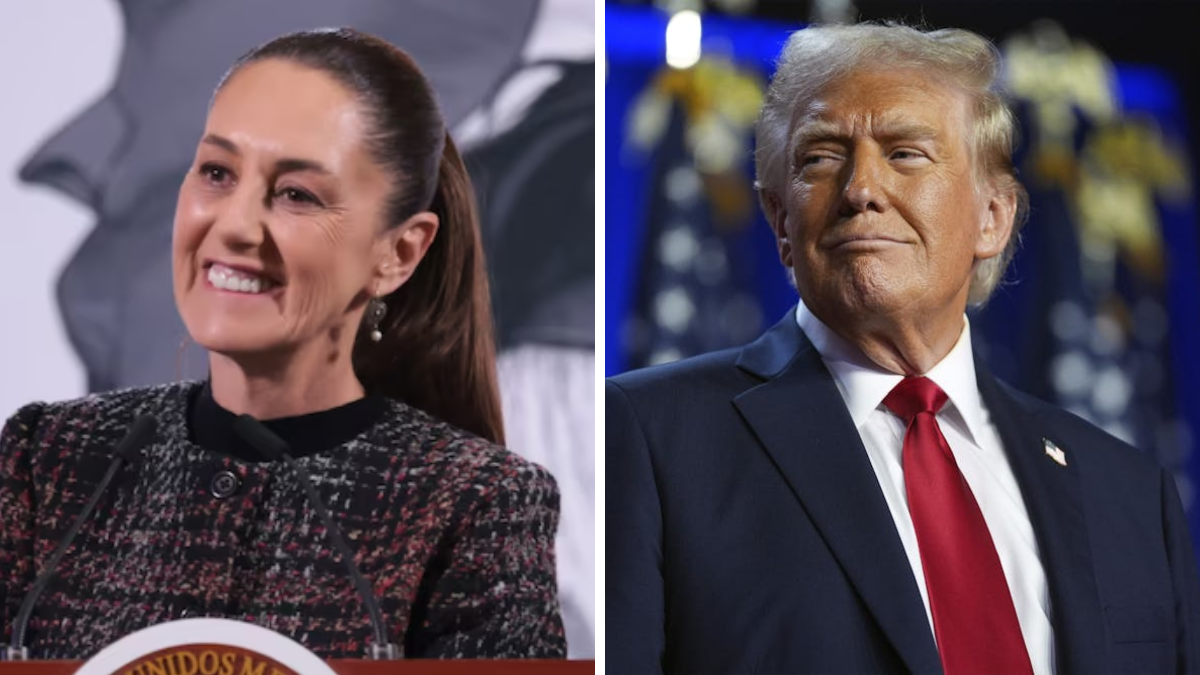The agreement between the United States and Mexico to delay the implementation of tariffs, as part of Donald Trump’s protectionist measures, brought relief for Mexican companies, especially for automakers based in that country.
Trump had decided to impose import tariffs by arguing that “they produce illegal fentanil and allow it to distribute it” in the United States.
The commercial war opened by Trump by announcing new tariffs to the three main partners of the country, Mexico, Canada and China, collapsed markets, wrapped in a state of panic before the possibility that more than three decades of economic integration are about to collapse.
A telephone conversation between Trump and the president of Mexico, Claudia Sheinbaummanaged to close a first agreement and offered a pause and a dose of relief to the conflict.
The Mexican automotive industry celebrated the one -month pause for 25% tariffs that the United States was going to impose on Mexico, although it pointed out that uncertainty will remain in the following years.
This sector would have been one of the most punished if customs taxes were adopted as of Tuesday, as planned, according to analysts.
The Mexican automotive sector, which in 2023 exported 36,000 million dollars to the United States, represents approximately 5% of the GDP of Mexico and generates hundreds of thousands of jobs. However, the planned tariffs would have had a significant impact on the industry, with an estimated increase of 3,000 dollars in the average price of vehicles in the US. And a fall in car sales in 2025.
Anyway, automotive companies around the world are preparing for what could be an even greater shock for the global automotive supply chain than the pandemic of COVID-19before the scenario that opens on the duration and scope of the Trump global tariff war.
According to experts, tariffs would add at least thousands of dollars to the cost of vehicles, and not only to those that are assembled in those two countries and are sent to the United States, but also to those that are manufactured in US automotive plants, due that All use have Canadian and Mexican pieces that cannot be easily replaced.
Trump agreed to suspend his tariffs for one month in exchange for the shipment of 10,000 soldiers by the Government of Mexico to the southern border to stop the traffic of fentanyl and the crossing of migrants without papers.
The new American administration also maintains fronts open with China and the European Union.
During the weekend, Trump signed an order to impose 25% taxes on imports from Canada and Mexico, and 10% to purchases from China.
In the case of Mexico, Trump justified the measure in the struggle to bend the traffic of fentanyl – an opioid that has raised in communities throughout the country’s width – and the arrival of undocumented immigrants to the United States.
After those ads, the Mexican president announced the implementation of a “plan B” to retaliate.
Meanwhile, the China Ministry of Commerce said that Beijing would file a complaint with the World Trade Organization (WTO) and take “corresponding counter -specified countermeasures to firmly safeguard their own rights and interests.”
In turn, the European Union (EU) also prepares to respond to the threat of the White House to stretch its tariff policy to the purchases of the Old Continent.
Source: Ambito
I am Pierce Boyd, a driven and ambitious professional working in the news industry. I have been writing for 24 Hours Worlds for over five years, specializing in sports section coverage. During my tenure at the publication, I have built an impressive portfolio of articles that has earned me a reputation as an experienced journalist and content creator.




